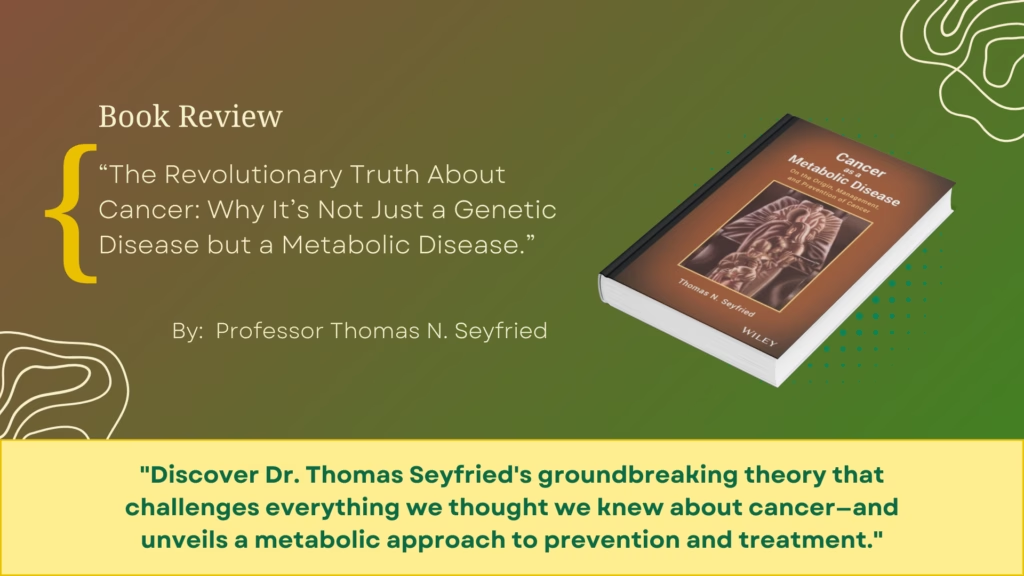
The Body Keeps the Score: Brain, Mind, and Body in the Healing of Trauma Review
Discover how trauma impacts the brain, body, and healing process with our in-depth review of The Body Keeps the Score by Dr.
Dr. Fung delves into the historical context of cancer research, examining how our understanding has evolved. He critiques the prevalent genetic mutation theory and argues for the metabolic disease model of cancer, positing that it is rooted in the dysfunction of cellular metabolism rather than solely genetic factors. The book is structured in several parts, addressing the historical misconceptions, the biochemical pathways involved in cancer growth, and offering insights into potential treatment avenues, including lifestyle and dietary interventions.
In “The Cancer Code,” Dr. Jason Fung presents a transformative approach to understanding cancer, challenging the conventional perspectives that have dominated oncology for decades. Drawing from his extensive background in nephrology and a keen interest in metabolic processes, Fung explores the cancer paradigm shifts from genetic determinism to metabolic dysfunction as the central cause of this often-deadly disease.
Dr. Jason Fung expertly navigates the complex landscape of cancer biology in “The Cancer Code.” His assertion that cancer should be viewed primarily as a metabolic disease aligns with the findings of researchers like Professor Thomas Seyfried, who has long advocated for the metabolic dysfunction theory of cancer. Fung emphasizes the Warburg effect—where cancer cells thrive on glucose, even in aerobic conditions—showing that glucose deprivation might inhibit tumour growth.
Throughout the book, readers are introduced to the profound implications of insulin and glucose metabolism not just for weight management, but for cancer progression. By framing obesity and insulin resistance as significant risk factors, Fung underscores the interconnections between diet, metabolic health, and cancer outcomes. His approach resonates particularly with those interested in metabolic therapy, an area gaining traction in the oncology field, coinciding with Professor Seyfried’s work on energy metabolism and tumorigenesis.
Fung also presents practical strategies within this context, discussing how ketogenic diets and intermittent fasting can positively impact cancer treatment and prevention. He moves beyond merely outlining existing treatments; he provides a holistic view that considers lifestyle changes essential for addressing the root causes of cancer rather than just the symptoms.
Dr. Jason Fung expertly navigates the complex landscape of cancer biology in “The Cancer Code.” His assertion that cancer should be viewed primarily as a metabolic disease aligns with the findings of researchers like Professor Thomas Seyfried, who has long advocated for the metabolic dysfunction theory of cancer. Fung emphasizes the Warburg effect—where cancer cells thrive on glucose, even in aerobic conditions—showing that glucose deprivation might inhibit tumour growth.
Throughout the book, readers are introduced to the profound implications of insulin and glucose metabolism not just for weight management, but for cancer progression. By framing obesity and insulin resistance as significant risk factors, Fung underscores the interconnections between diet, metabolic health, and cancer outcomes. His approach resonates particularly with those interested in metabolic therapy, an area gaining traction in the oncology field, coinciding with Professor Seyfried’s work on energy metabolism and tumorigenesis.
Fung also presents practical strategies within this context, discussing how ketogenic diets and intermittent fasting can positively impact cancer treatment and prevention. He moves beyond merely outlining existing treatments; he provides a holistic view that considers lifestyle changes essential for addressing the root causes of cancer rather than just the symptoms.
“The Cancer Code” is an engaging and thought-provoking read for anyone interested in a fresh perspective on cancer that is heavily rooted in metabolic therapy and influenced by the revolutionary insights of scholars like Professor Thomas Seyfried. Dr. Fung artfully fuses scientific exploration with practical advice, offering hope and a potential framework for both prevention and management of cancer. This book serves not only as a guide for patients and families navigating cancer but also as a call to rethink how we understand and approach this complex disease.
By shedding light on the metabolic aspects, Fung opens the door to a paradigm where diet and lifestyle might play pivotal roles in combatting cancer, urging a re-evaluation of established medical teachings that have long prevailed. This book is a must-read for enthusiasts of metabolic research and anyone seeking to broaden their understanding of cancer’s true nature.
This review may present alternative perspectives on cancer that differ from mainstream medical consensus. The theories and approaches discussed are presented for informational purposes only.
Readers should note that this content does not constitute medical advice and should not guide treatment decisions. Any consideration of metabolic approaches to cancer should occur under the supervision of qualified healthcare professionals familiar with your specific medical situation.
Please refer to our full medical disclaimer in the footer for comprehensive information about the educational nature of our content.

Discover how trauma impacts the brain, body, and healing process with our in-depth review of The Body Keeps the Score by Dr.

In Cancer as a Metabolic Disease, Dr. Thomas Seyfried presents a groundbreaking approach to understanding cancer, challenging the conventional genetic

Discover “The Ancestral Diet Revolution” by Chris Knobbe, MD & Suzanne Alexander, M.Ed., a ground-breaking book that reveals how seed